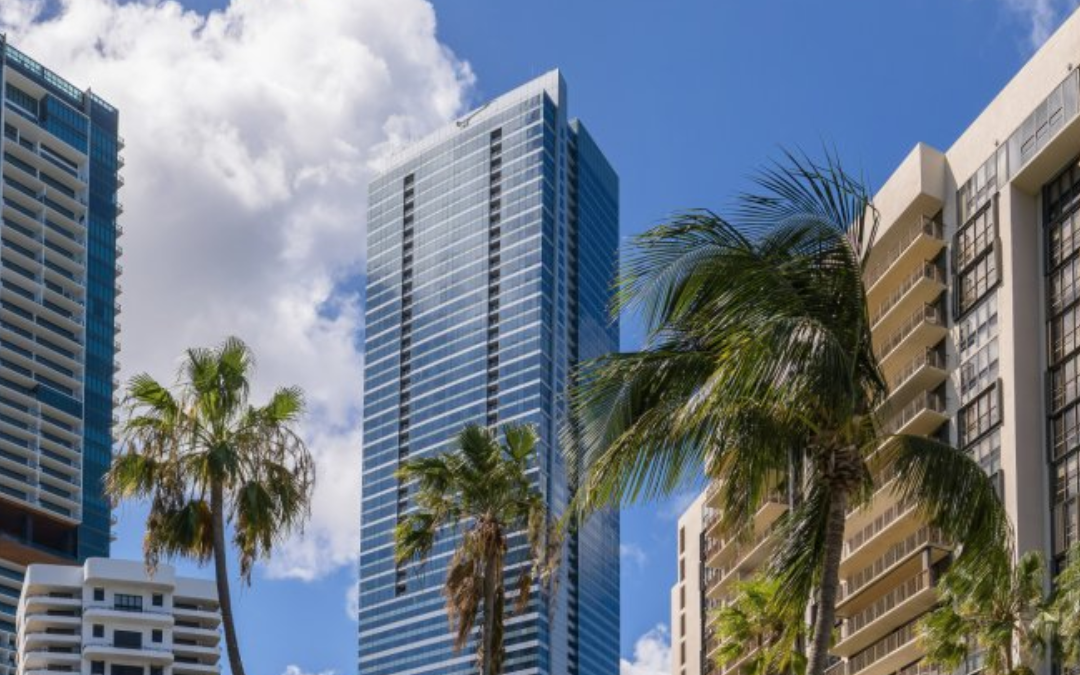A wave of financial strain is sweeping through Florida’s condominium market, pushing owners to the breaking point and flooding the area with for-sale signs.
Skyrocketing insurance premiums, unexpected repair assessments and restrictive lending practices have turned the dream of coastal living into a costly burden for many, particularly in older buildings, according to the Wall Street Journal. As prices slide and sales stall, the state’s once-booming condo sector faces a deepening crisis.

Within two years, a hurricane doubled their insurance costs, and a $7,200 special assessment for building upgrades hit, partially offset by $2,000 from insurance.
Monthly homeowners’ association fees jumped 25% to nearly $800, then climbed to $1,000. Unable to keep up and missing their grandchildren, they listed the condo last summer, competing against 43 other units in their community.
They accepted an offer $20,000 below asking and returned to New York.
“Florida is actually paradise,” Rob said. “It was superb, but things changed.”
The Dicksons’ story is far from unique. Across Florida, condo ownership costs have surged, driven by a trifecta of rising insurance rates, mandatory repair assessments and scarce financing options.
The fallout has triggered a sell-off, depressing prices and overwhelming the market. While South Florida’s newer condos continue to appreciate Miami-Dade County saw an 8% median price increase in February from a year earlier, fueled by corporate relocations older properties are in free fall.
Statewide, condo prices have declined 1% to 6% annually each month since July 2024, with a 3% drop in February, according to Florida Realtors.
Buildings over 30 years old have seen values plummet 22% in the past two years, per ISG World, a South Florida real-estate firm, while newer condos have gained 12% over the past decade.
The collapse in older condo values stems largely from stringent new regulations enacted after the 2021 Surfside condo collapse that killed 98 people.
These rules, requiring structural inspections and reserve funds for repairs, had a compliance deadline of December 2024. Yet, fewer than 25% of Florida’s condo associations have reported meeting the standards, according to the Department of Business and Professional Regulation.
With Florida housing 20% of US condos over half of which are at least 30 years old, per the UF Bergstrom Center for Real Estate Studies — the regulatory burden is reshaping the market.
“If these buildings are subject to reserve requirements, buyers want to make sure they’re getting into a situation where the condos have their act together,” Brad O’Connor, chief economist at Florida Realtors, told the Journal. “Whether it’s the lenders or the buyers themselves, we’ve seen a slowdown in condo demands.”
Financing woes are compounding the problem. Lenders are increasingly wary of condos, particularly those undergoing structural repairs.
